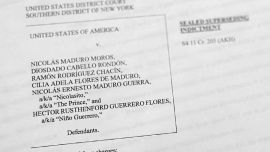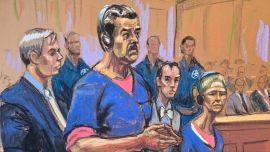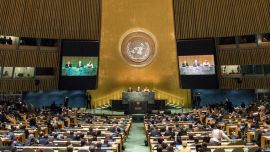The Congressional Cambiemos coalition spent the last 24 hours huddled in extensive meetings and embroiled in arduous debate regarding their internal position on recent events in Bolivia. But they finally managed to produce a unified document to take to the Lower House of the Chamber of Deputies to defend their own proposal to "repudiate attacks against the democratic system" in Bolivia.
In many ways, their position stands in contrast to the position of Mauricio Macri and his foreign minister Jorge Faurie, both of whom have refrained from calling the events a "coup." According to Faurie, "the elements are not present" to qualify it as such.
The text points out the culpability of the Bolivian armed forces but it also delves into the grave state of the country's democracy, de facto produced by the now ex-president Evo Morales.
"We ratify the agreement with the Democratic Clause of the OAS [Organisation of American States] and the Ushuaia Protocol of the Mercosur [trade bloc] and repudiate the attacks against the democratic system," the text began. It went on to say "the reprehensible police and military interventions in the political process" is akin to the "serious tampering with the popular will of the people" that took place.
"We reject any coup against democracy and all types of violence, supporting the constitutional authorities. We advocate for the immediate re-establishment of the State of the Right that guarantees peace [...] and achieves elections with total transparency and vigilance to its constitutional norms," the statement read.
Lawmakers asked to "condemn in the most vigorous form the breakage of institutions whose magnitude still hasn't been determined."
There, it explored the role of the military: "It is especially worrisome that direct interventions from armed forces have reappeared on our continent, often precipitating the resignation of civil authorities. For decades, Latin America was characterized by the repeated cycles of coups that were then replaced with dictatorial regimes. It's been more than 30 years since we've started to overcome this situation with Argentina as the vanguard. We stand as Congress of the Nation to express that we can never let this region return to the way of government overthrows."
The document goes on to discuss a different "world in which we live" where there are "other forms of degradation and death of democracy," as compared to the historic pattern of behavior that made it easy to identify when and how democracy died. "Military forces unseated a government. Then, they took control, banned political parties, established a dictatorship," the statement explained.
Such an explanation appeared to delineate a distinction between how Morales handled the election and how the Constitution outlines it.
"In this way, the breach of the limits that the Constitution imposes on presidential mandates, the disregard for the popular will expressed in the referendum, the interruption of the ballot count and the appearance of a result that just barely avoided a run-off, were all contributing to a demand that was growing in intensity and speed."
What started as a legitimate protest movement, according to the coalition's statement, eventually devolved into a kind of factionism that used threats and violence to create a different kind of grave threat to democracy.
"It is generating a movement of civil disobedience that has virtually paralyzed the country," according to the text. "We ask for the establishment of constitutional guarantees and compliance with international standards because nothing justifies the intervention and influence of the military in the context of democratic institutions."
Finally, the statement went on to say Argentina's foreign policy should promote and protect regional democracy and demand respect for regional instruments that give life to democracy as the acceptable form of government in South America. "The Democratic CLause and the Ushuaia Protocol aren't just aspirational, rather they are key instruments to which we owe absolute observance."
Pillars of these agreements include popular sovereignty, respect for the Constitution and for the Law, subordination of armed forces to civil power and clean elections.
"We understand that this is the way to consolidate democracy across the continent and the route that will permit Bolivia to overcome the crisis it now faces," the statement ended.
--Perfil

























Comments